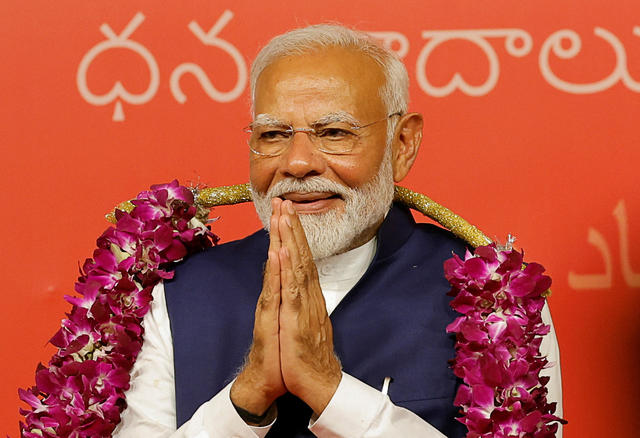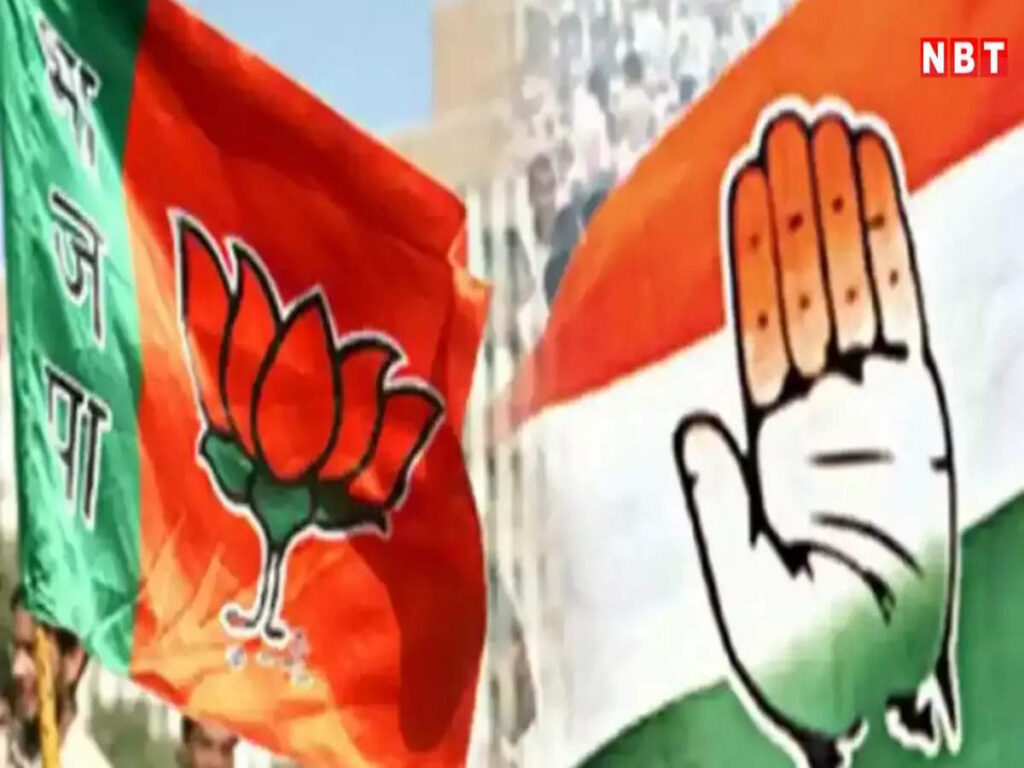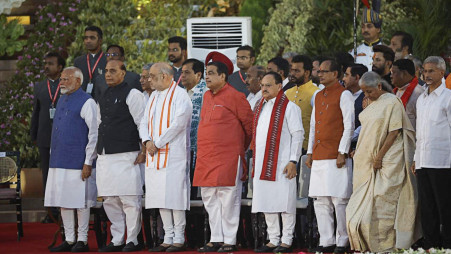India election results: Big wins, losses and surprises

A tight Varanasi race and BJP’s Maharashtra downfall – here’s how India’s 2024 Lok Sabha polls defied expectations.
With all of India’s 640 million votes counted following the six-week-long election, the world’s – and history’s – largest democratic exercise has thrown up some big surprises.
Read also – Science vs Commerce – Which is better? Career Scope, Jobs Salary

The governing Bharatiya Janata Party (BJP) of Prime Minister Narendra Modi won 240 seats, falling short of the 272-mark that signifies a majority in the Lok Sabha, the lower house of India’s Parliament, which has 543 seats in all. With its allies, the BJP has still secured a majority, winning 283 seats.
The opposition INDIA Alliance, led by the Indian National Congress party, won 223 seats.
These numbers contrast sharply with 2019 results when the BJP-led National Democratic Alliance (NDA) won 353 seats, 303 of which were bagged by the BJP alone.
At the heart of this shift was a series of political tremors that appear to have reshaped India’s political landscape.
Uttar Pradesh: A tight Varanasi race and the rise of SP
Uttar Pradesh (UP), a state governed by the BJP since 2017, has a total of 80 parliamentary constituencies. Being India’s most populous state with more than 240 million people, it holds the key to determining who governs in New Delhi. Moreover, both Modi and Congress leader Rahul Gandhi contested elections from different constituencies in the state.
In 2019, the NDA won 64 seats from the state, of which the BJP alone grabbed 62. The Congress won only one seat, the Bhaujan Samaj Party won 10 and the Samajvadi Party (SP) got five.
But the 2024 outcome looks very different. The SP won 37 seats and the Congress six – totalling 43 for the INDIA alliance.
The BJP won 33 seats, while its allies secured three seats in UP. Most stunningly, the BJP lost in Faizabad constituency, which is home to the Ram Temple Ayodhya, which Modi consecrated in January. The temple – built on the ruins of the Babri Mosque, which was demolished by a Hindu mob in 1992 – was a centrepiece of the BJP’s campaign.
Political analyst and Hindi professor Apoorvanand told Al Jazeera that the partnership between the SP and the Congress worked better this time than in the past, adding that the chemistry between SP leader Akhilesh Yadav and Gandhi was stronger “and it perforated downwards”.
Besides securing its usual voter base, which consists of Muslims and the Yadav community, the SP expanded into other marginalised communities, Apoorvanand said. He added that growing discontent with the BJP among those below the age of 35 also contributed, making the party lose its influence in the northern state.
In Modi’s constituency,Varanasi, Congress candidate Ajay Rai significantly ate into the prime minister’s 2019 victory margin. His victory margin dropped to about 152,000 votes from nearly 480,000 five years ago.
Read also – Top 10 online shopping apps in India in 2024

By contrast, Gandhi won Rae Bareli by 390,000 votes.
In nearby Amethi, the BJP’s Smriti Irani lost to the Congress’s Kishori Lal. In 2019, Irani had won the Gandhi family bastion, unseating Gandhi who had won the seat in 2014, by 55,000 votes.
West Bengal: Trinamool holds its fort
The key eastern state is currently governed by the opposition All India Trinamool Congress party, commonly known as TMC, a reluctant member of the INDIA alliance.
The BJP made a significant improvement in the 2019 elections compared with 2014, bagging 19 of West Bengal’s 42 parliamentary seats. The TMC won 22, while the Congress got two seats.
In advance of counting, exit polls had predicted the BJP could win a vast majority of the state’s seats.
But on Tuesday, those predictions turned out to be inaccurate. The TMC won 29 seats, with the BJP winning only 12. The Congress won the remaining seat
Kerala: How the BJP breached its final frontier
The southern state has long been a bastion of the left where the BJP, with its Hindu majoritarian politics, has struggled to win.
That changed this year when the party’s Suresh Gopi won by a margin of 74,686 votes in the Thrissur constituency and became the BJP’s first Lok Sabha parliamentarian from Kerala.
The Congress won 14 seats in the southern state.
So how did the BJP do this? In part, analyst Apoorvanand said, by “aligning and trying to collaborate with the Islamophobic elements within the Christian communities in Kerala”.
Hindus make up 55 percent of the state’s population, followed by Muslims at 27 percent and Christians at 18 percent. Together, the two minority groups make up nearly half of the population, making them formidable forces in elections.
But in recent years, the BJP, in addition to wooing the Hindu vote, has tried to win over sections of the Christian vote by presenting the state’s Muslims as a threat, its critics say.
Politics of humiliation: How the BJP lost Maharashtra plot
The BJP and its allies suffered big losses in the western state of Maharashtra as the Congress and its partners made key gains.
The INDIA alliance – which includes the Congress, as well as the splintered groups of Shiv Sena and the Nationalist Congress Party (NCP) – won 30 of the state’s 48 seats. The Congress alone won 13 seats, while the BJP won nine.
These results are not surprising, according to Apoorvanand, even though exit polls had predicted a big win for the BJP and its allies in the state.
Apoorvanand attributed the outcome to “the way BJP performed in the past five years, humiliating parties and state leaders”. He said the BJP’s “politics of humiliation” bred discontent for the party among voters.
Traditionally, the BJP has partnered with the regional Shiv Sena party. But over the past five years, that alliance broke down, and critics accused the BJP of orchestrating a fracture within the Shiv Sena, as well as the NCP, which was a part of the INDIA alliance.
Read also – How to Get Rid of Acne: 10 Home Remedies for Pimples

Karnataka: BJP bent, not broken
In 2019, the BJP won 25 of Karnataka’s 28 parliamentary constituencies, while two other NDA-affiliated candidates also won. The Congress won just one seat.
Although the Congress won elections for the last legislature last year, exit polls had predicted a repeat of the 2019 results, especially with the BJP also tying up with the regional Janata Dal (Secular) party this time.
However, this year, while the BJP emerged as the biggest winner, it won only 17 seats. The JD(S) won in two constituencies and the Congress won 10 seats.





One thought on “India election results: Big wins, losses and surprises”